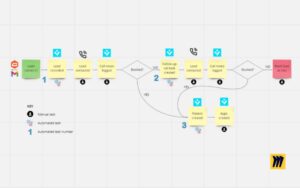The Personal Development Blog

Why Some CEOs Skip Breakfast (and Thrive)
For decades, you’ve heard that breakfast is “the most important meal of the day.” But increasingly, many top CEOs are choosing to skip it — and they’re not just functioning, they’re thriving.
Welcome to the world of intermittent fasting CEOs. These leaders think skipping breakfast helps them focus, think clearly, and be more productive. This blog looks at why some high-performers skip breakfast. Fasting can also boost your productivity, clarity, and control during the day.
What Is Intermittent Fasting (And Why Do CEOs Do It)?

Intermittent fasting (IF) means eating only during certain times of the day. Often, this involves skipping breakfast completely. The most popular version? The 16:8 method — fasting for 16 hours and eating all meals within an 8-hour window.
Why It’s Popular Among CEOs
- Frees up time: No need to prep or eat in the morning
- Sharpens focus: Mental clarity is often higher in fasted states
- Reduces decision fatigue: Fewer choices to start the day
- Improves energy regulation: Less reliance on sugar and snacks
- Supports discipline: Builds a mindset of restraint and control
For many leaders, it’s less about weight loss — and more about mental and operational efficiency.
High-Profile Intermittent Fasting CEOs
You’ll find more than a few high-achievers who thrive without breakfast.
Jack Dorsey – Former CEO, Twitter & Square
Fasts for up to 16–20 hours daily. Claims that fasting improves mental sharpness and clarity.
Naval Ravikant – Angel Investor & Entrepreneur
Follows a strict fasting schedule. Says it simplifies life and boosts energy.
Gary Vaynerchuk – CEO, VaynerMedia
Has spoken openly about skipping breakfast to maintain focus and productivity during key hours.
Elon Musk – CEO, Tesla & SpaceX
Reportedly avoids breakfast most mornings, with coffee as his primary start. Focuses on high-output work first thing.
These leaders show that skipping breakfast isn’t a liability — it can be a productivity tool.
What Happens to Your Body When You Skip Breakfast?
Skipping breakfast doesn’t just save time. It also causes changes in the body that help energy and brain function.
Benefits of Fasted Mornings
- Increased alertness: Hormones like cortisol and adrenaline are naturally higher in the morning
- Improved insulin sensitivity: Reduces the risk of blood sugar crashes
- Autophagy activation: Your body repairs and cleans cells more effectively during fasted states
- Elevated brain-derived neurotrophic factor (BDNF): Boosts memory, learning, and mental clarity
These effects explain why fasting for productivity is gaining traction among high-performing professionals.
Common No Breakfast Habits Among CEOs
Skipping breakfast doesn’t mean doing nothing — it just means doing things differently.
Typical Morning Routine Without Food

- Hydration: Large glass of water, often with lemon or sea salt
- Black coffee or tea: Supports focus and fat metabolism
- Light movement: Walking, stretching, or light cardio
- Strategic work: High-priority thinking and execution tasks
- First meal around 12–1 PM: Often clean, protein-rich, and low in sugar
The result? A streamlined morning with fewer decisions and more momentum.
Fasting for Productivity: What the Research Says
The science behind skipping breakfast is growing — and it’s not just about metabolism.
Proven Performance Benefits
- Better cognitive function: Fasting improves mental clarity and working memory
- Reduced inflammation: Linked to better long-term brain health
- Improved mood stability: Fewer sugar crashes = fewer mood swings
- Higher growth hormone levels: Supports recovery and energy during fasted states
For CEOs juggling pressure, speed, and strategy, these benefits can be transformative.
Is Skipping Breakfast Right for You?
While intermittent fasting CEOs thrive without breakfast, this approach isn’t for everyone. It depends on your goals, body type, and work demands.
You May Thrive Without Breakfast If:
- You wake up without hunger
- Your mornings are packed with high-focus tasks
- You prefer eating later or larger meals in the afternoon
- You feel mentally clear without food
- You’re already time-constrained in the mornings
Listen to your body — it will tell you what works.
How to Start a No Breakfast Routine Without Losing Energy
Shifting to a fasting routine takes a bit of adjustment. Here’s how to make it smooth and sustainable.
1. Ease into it
Start by delaying breakfast by 30–60 minutes each day.
2. Stay hydrated
Drink at least 500ml of water within the first hour of waking.
3. Use black coffee or green tea

Both help suppress appetite and improve focus without breaking your fast.
4. Skip sugar and sweeteners
Even artificial ones can disrupt fasting benefits.
5. Break your fast smart
Choose whole foods rich in protein, fibre, and healthy fats when you do eat.
Consistency matters more than perfection — give your body time to adapt.
When Skipping Breakfast Might Backfire
Despite the benefits, no breakfast habits don’t suit everyone.
Watch for These Red Flags:
- Mid-morning fatigue or irritability
- Trouble concentrating during meetings
- Excessive hunger leading to overeating at lunch
- Disrupted sleep or high evening cravings
- Mood swings or headaches
If any of these sound familiar, consider adjusting your fasting window or reintroducing a light breakfast.
Smart Tools for Successful Fasting
If you decide to skip breakfast, a few tools can help you maintain energy and focus.
Top CEO Fasting Hacks:
- Sparkling water: Keeps the stomach settled and adds variety
- Electrolyte drinks (unsweetened): Help avoid fatigue
- Apple cider vinegar (diluted): Some use it to aid digestion and curb appetite
- Light walking or breathwork: Supports energy without breaking your fast
- Batch cooking lunches: Helps reduce poor choices when hunger strikes
The key is structure. Without it, fasting can become draining.
Combining Fasting with Other CEO Habits
Fasting works best when paired with other high-performance rituals.
Ideal Morning Stack Without Food:
- Wake at a consistent time
- Hydrate with water or herbal tea
- Move gently (stretch or walk)
- Meditate or journal for 5–10 minutes
- Tackle deep work or strategy before meetings
- Eat your first meal only after your peak work is done
This combination boosts calm, focus, and creative thinking — before distractions take over.
Control Your Mornings by Controlling Your Intake
Not every leader needs breakfast to perform at their best. Some rise, move, think, and thrive — all without food until midday.
Intermittent fasting CEOs aren’t chasing trends. They’re building mental clarity, better focus, and stronger routines by eliminating unnecessary friction.
To make your mornings easier and improve your performance, try skipping breakfast. It can help reduce your choices and streamline your routine.
Try it. Track the results. And trust your body. Because in the world of leadership, focus is fuel — and sometimes, less really is more.
For Your Next Read: Explore healthy smoothie.









